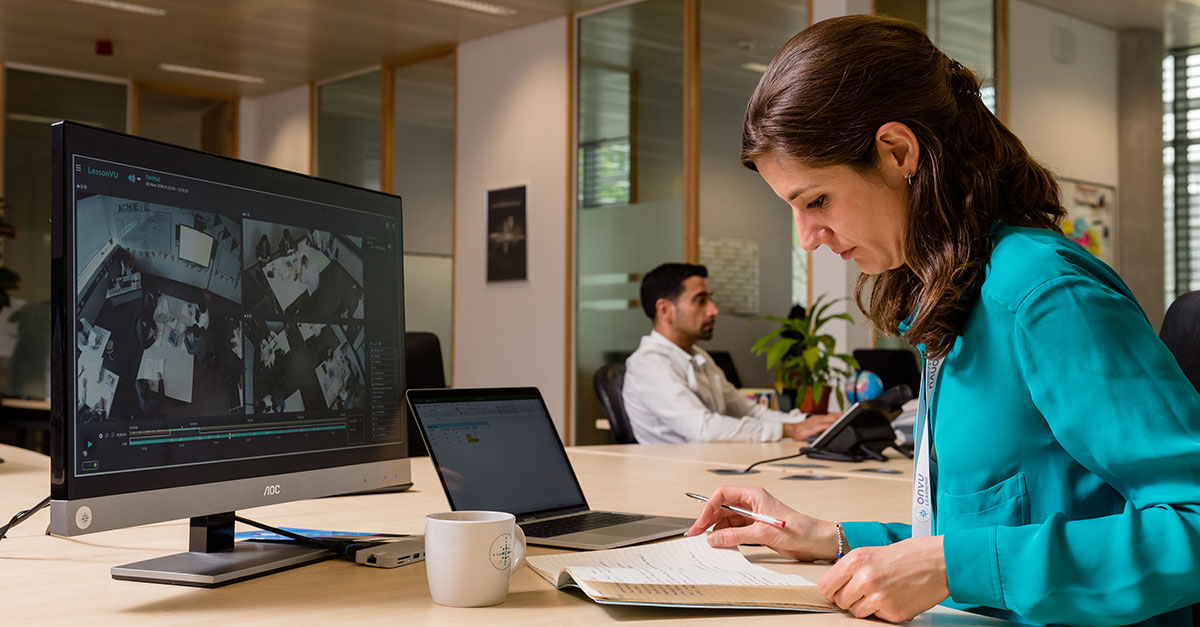- Blogs
- 2 Minute Read


Trainee teachers face a huge challenge at the best of times – taking over classes and lessons from more experienced colleagues, explaining complex ideas and assessing learning and progress for the first time.
But things are more difficult this year – trainee teachers will be faced with restrictions on group work, practical activities and may also have many of their students out of school for periods of time.
So, what advice would we give them? Here are 8 practical ideas…
1. Learn the processes and policies the school is using in the ‘new normal’
For example, it may be that with teachers moving around secondary schools, each lesson starts with a formal introduction and focus – something that wouldn’t be needed if students were lining up outside a classroom. You should also find out what changes have been made to other policies such as homework and behaviour and make sure you follow them to avoid any confusion.
2. Find out as much as possible about your students
It’s always best practice to find out about student special needs, but you should also try to talk to the schools SENCO or other specialists and see if you can find out more about how these can best be met in the current situation. You should also find out if other students are dealing with issues such as bereavement or family illness.
3. Check any technology works in advance
As a trainee teacher it may be that the school’s IT systems are catching up with your presence! Find time to log onto all computers you might be using, especially if you’re moving around the school more than you would have expected and check equipment such as visualisers and video cameras are working and in the right place in the room for how you work.
4. Take everything you might need with you
It used to be relatively easy to grab extra resources or to send a child for them during a lesson. But if you’re on the other side of the campus and barred from sending students for help you’re stuck. So, make sure you have extra paper, spare board pens, copies of resources and so on.
5. Watch others teach as much as possible
If you’re taking over from a teacher as part of a placement, see if you can arrange to watch more lessons than are usual. And if you can, also watch video lessons of teachers in your school – especially focusing on the areas such as the start of lessons that are more difficult at the moment.
6. Don’t try to do too much in your lessons
Experienced teachers are finding that they are spending much more time talking than usual and that their pupils are doing more and longer individual tasks that better suit the ‘new normal’ seating arrangements. It might make sense to do the same and plan less group work, at least while you get to know the class and how to adapt your teaching.
7. Reflect in a positive way
Following on from the last point it is especially important that you focus on the good things in a lesson. Don’t focus on ‘tick lists’ even if you’ve been given them by your school or university. Think about what went well and what you will do again first before you have any negative thoughts.
8. Seek help if things aren’t going to plan!
The ‘new normal’ means you will have less time with other teachers and trainees and fewer supportive chats in the staff room. So, make sure you have as much time as you can (digitally if needed) with your mentor, fellow trainees and other teachers. External mentors may find it difficult to visit schools – you could consider working with placement schools to video lessons to send them to mentors for advice. And if your school is part of the Early Career Framework (either in a pilot area or taking part voluntarily), make sure you’re getting full access to the time, resources and mentoring opportunities it provides.

The School of the Future Guide is aimed at helping school leaders and teachers make informed choices when designing the learning environments of the future using existing and upcoming technologies, as they seek to prepare children for the rest of the 21st century – the result is a more efficient and competitive school.
KEEP IN TOUCH WITH ONVU LEARNING AND RECEIVE THE LATEST NEWS ON EDTECH, LESSON OBSERVATION, AND TEACHER TRAINING AND DEVELOPMENT.